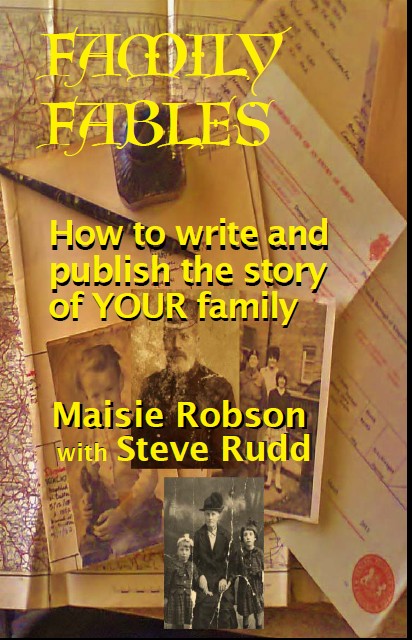It has been a busy week in the Holme Valley.
The balminess of early October has now gone, and the weather has acquired a
steely edge. The wind is getting up as
well, as if the few remaining leaves hanging on the willows needed any further
encouragement to join the drifts of gold-yellow leaves that have already
dropped off the trees.
That time of year thou may in me behold
When yellow leaves, or none, or few do hang...
The drop in the temperature has seen Matilda relocate her
household activities (which consist mainly of sleeping) from the settee in the
conservatory, which can get a bit chilly now, in the watches of the night, to
the settee under the window in Colin’s front room, where she nests in an old
woolly jumper of mine which I donated for the purpose. She jumps up on it and
gives it a good kneading while going round and round for a minute or two, then
settles down on it with her tail over her nose and before you know where you
are, she’s gently snoozing.
The dogs (we’ve had Zak on and off again, as Ellie is still
not 100%, though she’s better than she was) have been getting used to coming
home in the dark with their twinkly lights on their collars, as the nights are
definitely drawing in, all the more so since the clocks went back this weekend. Sadly, this also brings with it the increased
risk of morons letting off fireworks as soon as darkness falls, but so far,
touch wood, the combination of keeping Misty on a lead when this is likely,
plus the twinkly light to spot her if she does run off (it can be seen up to
half a mile away, apparently) has got her home safely. We’re stuck with
fireworks now until just after New Year’s Day, I reckon, so once again, we’ll
have to cope with selfish idiots upsetting the dog and the risk of her running
off.
Deb has successfully made it to half-term, and next week
we’re hoping to get away for a couple of nights to the Lake
District in the camper, as she has set her sights on Scafell.
She’s done Scafell twice before, once with Tiggy, but Misty and Zak have never
been up England’s highest mountain, so it’s time they added to their tally of
Wainwrights. Meanwhile, yours truly has
been scrabbling around frantically trying to finish off the last three books to
go to press this year (not counting mine, which always get pushed down the
batting order when there’s a crisis!)
I have mixed feelings about going away next week, but then I
always do. On the one hand, I could do with a break, even though the days will
probably be cold and dark, but on the other hand, there’s much to do here.
Having said that, since the advent of the hated smart phone, which is completely
useless in many respects, at least I do have a reliable modem and internet
connection, unless we’re completely shut in by mountains all around.
If we are completely cut off from the outside world, the
positive aspect of that is that we won’t be able to hear the news, which should
do my blood pressure some good. This was the week the Chinese came to
town. In order to demonstrate their
determination to take a hard line on China’s appalling human rights record and
their illegal occupation of Tibet since 1950, the Junta stuck president Ping or
whatever he’s called in a golden state carriage and trundled him along the Mall
in the company of HM Queen. That’ll larn
‘em! Meanwhile, up and down the country, workers in our steel industry, or what
was left of it, were learning that, like turkeys, they were mostly for the chop
at Christmas, even if they managed to survive Thanksgiving. Undeterred, David
Cameron fearlessly challenged the damage being done to our own manufacturing
industry by cheap Chinese imports as her, er, signed a deal to allow China to
build several nuclear reactors on British soil, presumably complete with remote
detonator buttons, to save them all the tedious nonsense of firing a missile.
It’s all perfectly safe, really. The prime minister, a man
who has often set out his opposition to the very concept of nationalisation,
has assured us that the nuclear power stations will be built by state-owned
firms from China and France. As eny
fule kno, there is a long tradition of France
having nothing but the best of feelings and good intentions towards Britain. One has only to look at Agincourt, a mere 600 years ago today. What
could possibly go wrong? Presumably all those tedious people who keep bleating
on, apropos the refugee crisis, that
we should “look after our own first” and who undoubtedly voted Tory to a man,
or woman, are, despite their “Britain First” views, quite happy with our steel
industry being trashed in favour of cheap imported steel, then? After all, like
the benefit cuts, which they are belatedly realising also apply to them, they
did vote for this crap, unlike me.
The “cuts to tax credits” saga is still rumbling on, and I,
for one, sincerely hope it turns into Cameron’s “poll tax” moment. Thatcher, too, displayed a pig-headed
attitude towards pushing through legislation for purely ideological reasons,
despite the fact that it also hurt some of her own core demographic and voters,
and this is exactly what Cameron is now doing. Of course, he’s already said
he’s going before 2020, so his colleagues may not have to queue up in the
corridor to administer the lead sock treatment, as they did to Thatcher, but it
would be satisfying to see the whole imbroglio
blow up and derail before he goes, while he’s still around and able to feel the
full effects of the blast.
Some people say (usually the same people who say that we
should look after our own first) that they have no sympathy with the victims of
tax credit cuts and that they
certainly never had any help in the form of tax credits when they were bringing up a family, blah
blah, etc etc. This may well be true, but I like to think we’ve got a bit more
civilized since then. In the times they were talking about, children had bad
teeth and rickets, and probably left school at 12 to go up chimneys or
something. Things are supposedly
better now – you wouldn’t want to go back to the bad old days, would you?
Unless you voted Tory of course, in which case, yes, I can see where you are
coming from. Your natural standpoint
will be to complain if someone else is getting a perceived benefit which is
currently denied to you and yours, irrespective of the truth or otherwise in
that assertion, which has probably been made up by the Daily Mail anyway, and irrespective of the fact (often overlooked)
that if you were in their position, under
a universal system, then the benefit, whatever it is, would be available to
you, too. It’s amazing how often you
have to point this out to the hard-of-thinking.
Clearly Jeremy Corbyn still has a lot of work to do to
challenge the misapprehension that there isn’t enough money to raise the
standard of living of the poor and take children out of poverty. You would expect, wouldn’t you, that, having
seen a clear mandate for the Labour Party to oppose “austerity” being handed to
Corbyn by his 59% victory, that the rest of the party would be uniting behind
him to help achieve this aim. Er, well, not quite. This week two Labour peers
left the party, claiming that Jeremy Corbyn was “unelectable”. These were, of
course, two unelected people complaining about the result of a democratically
held election. In purely monetary terms, as well, I doubt Corbyn will be too
worried – 160,000 in, two out.
The two peers in question obviously thought their exit would
be splashed all over the media (which it was, briefly) and that it would damage
Jeremy Corbyn (which it didn’t, really, because most people’s initial reaction
was “Lord Who?”) The second of the two,
Lord Grabiner, hadn’t attended the chamber since 2013 and hadn’t spoken since
2011. He does, however, on the plus side, have a name which is tailor-made for
sexual harassment, if he ever decides to take it up as an occupation. The first bloke was so obscure that, in my
notes for this piece, he appears as “Lord Wall, or whatever he’s called” and I
still can’t remember his real name. Not that it matters.
There are those who would say that the term “Labour Peer” is
actually an oxymoron, and I would agree, they are partly right, in that most of them are morons. But the really sinister Labour peers are not
the sleazy old buffers who snort cocaine off the embonpoint of a hooker (and we’re not talking the Rugby
world cup here) while wearing her bra, but the ones who remain there,
particularly when they are consorting with the Tories to abandon a fundamental
concept of the NHS. It emerged briefly
this week, but was not covered by any of the so-called mainstream media, that
talks and discussions have taken place in the House of Lords, including
contributions to the debate by Labour peers, some of whom seemed to quite
favour the idea, on abandoning the free aspect of the NHS and moving towards an
insurance-based payment for treatment system.
Leaving aside for a moment that we already have an
insurance-based system to underpin the NHS, called National Insurance, though
it has been a long time since this was hypothecated on health spending and
these days it is just grabbed by the government and used for whatever current
war we’re embroiled in East of Suez, how can any of the Labour peers who seem
to be in favour of this move reconcile these views with belonging to the very
party which founded the NHS and which established the principle that care was
free at the point of treatment? Well, Lord Desai? [The debate may be found in
House of Lords Hansard for 9th July 2015, if you want to look it up,
but be prepared with a sick bag near at hand if you are nauseated by reading
page after page of back-slapping convivial bonhomie between people who are
supposed to be opposing each other.] The
House of Lords can still just redeem itself in my eyes by passing its “Fatal
Prayer” or whatever it’s called, to kill off the tax credit cuts, but from now
on, you ermine-lined fools, I’ll be watching you.
Yes, money is in short supply, which is allegedly why the
cuts to working tax credits are necessary in the first place. How odd, then that the Department of Work and
Pensions has seemingly found £8.5million in the back of a drawer somewhere, or
down the back of a sofa, with which to visualise, create, and advertise on TV a
campaign featuring “Workie” an 8-foot-high tie-dye furry gonk who is supposed
to be the “living embodiment of a workplace pension”. If you think the living
embodiment of a workplace pension is an 8-foot-high multi-coloured gonk, I
would lay off the Tramadol for a while, if I were you.
Apart from the fact that there’s absolutely no artistic
connection between the idea and its execution, apart from the fact that the
gonk has a more than passing resemblance to Iain Duncan-Smith, its exploits, as
shown at least in the TV ads I have seen, are completely unsuccessful – maybe
it’s meant to be ironic, in some sort of way only the hipsters from Hoxton who
staff the sort of agencies the COI habitually uses for this kind of drivel
understand, but it’s lost on me. If you
were going to piss away £8.5million of public money on an imaginary character
to embody workplace pensions instead of spending the money on, say, directly
alleviating child poverty, you could at least have the common sense to make
your character a successful character!
As it is, I predict that in real life, “Workie” will be as
successful as he is in the adverts, and the money wasted on him will vanish
down the same sinkhole as the money wasted on the badger cull, and the money
wasted on inept and cack-handed defence contract procurement, and so on, and so
on. I don’t know if “Workie” actually exists physically in any way shape or
form, or whether the adverts are all done by CGI. I suspect the latter, but if
there is indeed a physical “Workie” anywhere, come the revolution, I would like
to see its vile multi-coloured body doused with petrol and publicly burnt on
College Green, and its severed head set on a spike next to Westminster Bridge,
as a warning against politicians with no compassion and an overdeveloped sense
of their own importance.
As I said last week, I do find it difficult these days to
distinguish between the “real” news and the spoofs generated by people like Private Eye, and the Daily Mash. I really did think, for at
least five seconds, that “Workie” was a Daily
Mash article. Some stories, though,
are all too obviously real. The Second Chance Animal Home in Crockenhill, Kent,
has been targeted by vandals in an arson attack, the second in two or three
years. They are in desperate need of
donations, and also practical help to get up and running again, if you are
within a sensible distance to offer help.
I can’t begin to describe the anger I feel at the people who would do
this – as I have said before, I’m with Wainwright on this one, I would do to
the yobboes exactly what they did to the animals. In this case, lock them in a
burning building. Except it would
probably be a waste of good paraffin. Anyway, yes, I know, vengeance is mine,
saith the Lord, and all that, and I hope he does come through with his promise
to repay, and the people who did this eventually have a long and intimate
relationship with arson at first hand, in the ovens of Hades, on the prongs of
a demon’s pitchfork, for the rest of eternity.
George Bernard Shaw once said that man’s inhumanity to man
begins originally with man’s inhumanity to animals, and criminologists back
this up as they discover time and time again that people who turn out to be
psychopaths or serial killers started out in a small way by being cruel to
animals, so perhaps our judicial system instead of handing out ridiculously
light sentences to animal abusers, should start taking note of this tendency,
and take steps to nip it in the bud.
I doubt, though, that there would be much mileage in that
idea, in a world that doesn’t even seem to care that much for people, let alone
animals. There have been two very grave
developments in the refugee crisis this week, while the politicians continue to
haver and hem and haw about what to do. One of them has been reported, but its
impact has been dimmed by what I can only describe as “compassion fatigue”
setting in, and the second of which I have hardly seen reported at all.
The first is that, as predicted, even in the Med, the
weather is turning more autumnal, and the conditions in the various camps are
starting to reflect this. Lesbos is on its knees.
There are various organisations over here raising money and aid to send
out to the people stuck there, and they are fairly easy to find, so I won’t
give a long litany of them here. But
it’s not only Lesbos, more or less everywhere where there are temporary
encampments, for instance along the Macedonian border, you will find bad
conditions underfoot, people suffering from a lack of tents, tarpaulins, food
and warmth. While the efforts of the
various aid agencies (and indeed individual fundraising groups which have
sprung up more or less overnight, born out of frustration at the lack of an
EU-wide, co-ordinated response, have been magnificent, the media definitely
give the impression that for them, it is yesterday’s story. This cannot be
allowed to happen.
What would really make a difference, though, is some action
by someone with some clout. Greece’s economy was on its deathbed before this
summer’s refugees arrived: Germany,
which has actually taken probably more than its fair share of refugees, is too
far away to help directly. But we can. There is an RAF base on Cyprus – in fact, this week, one desperate boat
load of refugees actually landed there – it is the base from which we are
currently bombing Syria.
Here’s an idea. Stand down the Tornados, get some Hercules transport planes
over there, load them up with humanitarian supplies, and air-drop them to
designated areas near the local hot-spots where the relevant authorities can
access them and make sure they are distributed fairly. Or we can carry on with the missiles,
creating more refugees, and eating up the defence budget £800K at a time. Which is the better choice?
The second development is entirely more sinister, and I have
only seen it reported in a couple of non-mainstream news outlets, following
reports to the NGO Human Rights Watch. There have been stories of refugees at
sea being sighted and approached by fast RIB-style vessels, the sort commonly
used by police forces and the military. These vessels carry no markings, and
their crews are armed, and wearing balaclavas.
One of the witnesses related how, at first, the occupants of his boat
were jubilant, as they thought this was the rescue services coming for them. Victims
in six separate cases told of having their fuel lines deliberately cut, of
having their outboard motor disabled or taken away by these armed men, and in
one instance, a rubber life raft was punctured and left to sink with its
occupants still aboard.
So, who is doing this? It could just be pirates, of course,
but there aren’t any reports of robbery or anything like that – plus, the
equipment seems to be the sort that is commonly used by police and the
military, see above. But whose police or military? ISIS aren’t known for their
naval prowess, nor do they have particularly convenient access to a port near
enough to deploy what are essentially inshore craft. When attempting to tease out this kind of
puzzle, my usual method is to employ the phrase cui bono? Who will benefit most from migrants being stopped before
they can reach their destination? Greece,
certainly, but do they have the money to do it? Turkey – yes, another candidate,
especially as they hate the Kurds, who may be found amongst the refugees;
Russia, maybe, in an attempt to curry favour with Assad, although to be honest,
it’s Assad who needs to curry favour with them,
to save his neck, so maybe not. Or
possibly the UK?
Cameron has previously suggested that one method of stemming the flow of
refugees would be to bomb the boats that the people-smugglers use. The most plausible theory that I have seen so
far, though, is that it is actually renegade elements of the Greek coastguard
who are doing this, because they disagree with their country’s policy.
I’d like to think it still is too far fetched to believe that UK special forces are now operating covertly in the Med, to achieve this aim by other means. I’d like to think that, if ordered to cast civilians, including helpless women and children, adrift on the high seas, at peril to their lives, even the most hardened SAS man would have qualms. But stranger things have happened. And meanwhile, while the politicians faff and muddle, the boats keep coming, and people are still drowning.
I’d like to think it still is too far fetched to believe that UK special forces are now operating covertly in the Med, to achieve this aim by other means. I’d like to think that, if ordered to cast civilians, including helpless women and children, adrift on the high seas, at peril to their lives, even the most hardened SAS man would have qualms. But stranger things have happened. And meanwhile, while the politicians faff and muddle, the boats keep coming, and people are still drowning.
Reading the comments on various social media postings
relating to this story, with people actually praising this action, whoever is
responsible for it, and saying it was long overdue, could make you very
depressed, if you let it. Either way,
it’s been a grim old week, not improved for me by the clocks going back. Anyway, bad news notwithstanding, somehow we’ve staggered
through to today, which is of course St Crispin’s Day! The real St Crispin is rather nondescript,
sadly, but has been given a prominence possibly beyond his original level of
potential interest by being featured by old Shakespoke in Henry V.
Even people who will happily recycle any old twaddle about
the semi-legendary exploits of saints admit that the St Crispian story is
possibkly “unreliable”. Together with
his brother Crispinian, these two Roman nobles left ancient Rome
to travel to Gaul and settled at Soissons,
where they both preached the Gospel by day and mended shoes by night. Unfortunately for them, the Emperor Maximian,
who was visiting Gaul, heard about this and
arranged for them to be tortured by one Rictiovarus (whose existence is
apparently doubted by some scholars). It turned out, though, that Rictovarus
was unable to break them, and in the end, he committed suicide instead. When
the Emperor heard about this, he decided that enough is enough, and had Crispin
and Crispinian beheaded. They became,
jointly, the patron saints of shoemakers, leatherworkers and cobblers.
And there they would probably have remained, in relative
saintly obscurity, had not The Bard given Henry V the St Crispin Day speech
before the depiction of the Battle of Agincourt in the play. There must be a few people living in remote
settlements who haven’t ever heard Sir Laurence Olivier give the definitive
reading, including the incredible rising intonation on the last word “day”
where Olivier manages to achieve a sound which resembles a jumbo jet taking
off.
It has, of course, been appropriated by many people for
their own ends (as have many other bits of Shakespeare, including “this sceptered
isle” which has been given a meaning completely contrary to that given to it by
John of Gaunt, simply by cutting the last few lines) and for a while, fell out
of favour. I remember my old English teacher in the 1960s dismissing it as
“patriotic rubbish”.
As I’ve got older, however, I’ve got past the French-bashing
aspects of it and have been able maybe to think my way into the mind-set of
Henry, as shown by that speech. He’s
outnumbered, hundreds of miles from home, and facing if not outright mutiny,
then at least dissent in the ranks. He overhears Westmoreland wishing (in a
plea that has lots of modern resonances in the week of the steel industry
redundancies…)
O that we now had here
But one ten thousand of those men in England
That do no work to-day!
O that we now had here
But one ten thousand of those men in England
That do no work to-day!
And seizes his chance to deliver a startling peroration
where he actually takes their rather dire situation and re-packages it to point
out that it actually has advantages. I must admit I find myself wishing I had
some of that spirit right now. I feel
possibly more beleaguered than Henry V, only in my case I am surrounded and
outnumbered by problems, rather than the French. And for at least some of next week I will be
spending cold dark days away from home, if the camper trip comes off, and little
Matilda will be in the combined care of Granny and Katie the Doggy Nanny for a
couple of days or so. Sadly, the
problems won’t go away, only I will.
Still, we few, we happy few, and all that. And in a sense Henry V is right – if you are
going to go down fighting, give it your best shot, I guess. Many years ago, when I first started writing
these Epiblogs, I wrote one on the eve of a (then) crucial meeting with the
bank manager, which I likened to the eve of St Crispin’s Day. The bank manager is long gone, but strangely,
it feels like it did that time, again today.
I don’t really know why, except that by the time the end of October
comes around, it’s nearly the close of the year – it’s dark at five, and soon
it’ll be dark at four.
I’m late finishing this tonight, and I haven’t really
progressed very far this week. When I think of the amount of spiritual stuffing
that has been knocked out of me, it’s a wonder I’m still standing – well,
metaphorically standing. So, I’m going
to close this down, do the washing up, make sure the dogs and cat (and Debbie)
are all warm enough, and have had enough to eat, and then bomb up the stove, lock
up and maybe even (gasp) have an early night, as I suspect I won’t get much
sleep in the camper, unless the weather dramatically warms up. Whatever, there’s a long week ahead, so I’d
best get my bowmen (or dare I say The Archers) in a row!




















